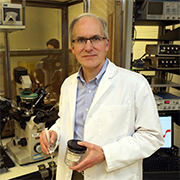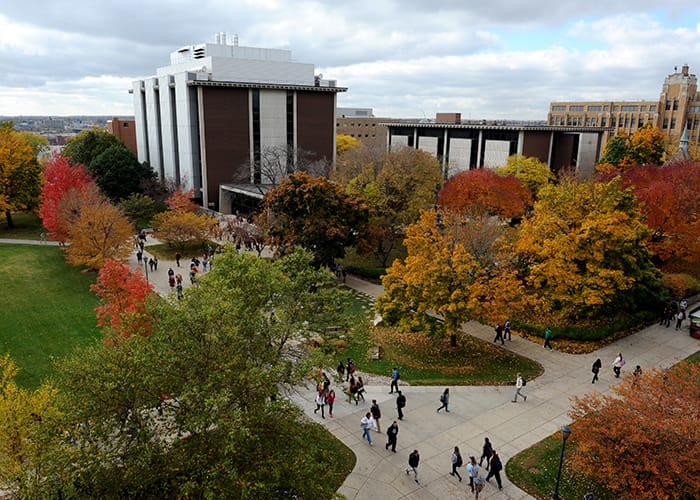2016 Way Klingler Fellowships Award Recipients
 Dr. Eugenia Afinoguénova
Dr. Eugenia Afinoguénova
Professor of Spanish
Dr. Eugenia Afinoguénova, professor of Spanish, is the recipient of this year's Way Klingler Fellowship Award in the humanities.
The award, which includes $20,000 annually for three years, will allow Afinoguénova to build a "time cube": a three-dimensional visualization combining the texts and the itineraries of more than 100 travelers along 19th-century Spanish roads. The work will be done in conjunction with the University of Wisconsin-Milwaukee Digital Humanities Lab, the American Geographical Society Library and the Marquette Visualization Lab.
Afinoguénova aims to give scholars the interdisciplinary tools to analyze the literature, using computer analysis and visualization through her Spanish Traveler's Project. The goal is to offer a web-mapping tool for connecting the spaces of 19th-century authors' imaginations to real world locations.
"It's very important work and without it nothing can happen," Afinoguénova said. "Spain doesn't have digitized 19th-century maps where we can draw lines. We will be able to have data appear as a line along a historical road."
 Dr. Robert Peoples
Dr. Robert Peoples
Professor of Biomedical Sciences
Dr. Robert Peoples, professor of biomedical sciences in the College of Health Sciences, is the recipient of this year’s Way Klingler Fellowship Award in science.
The award, which includes $50,000 annually for three years, will allow Peoples to research the mechanism by which alcohol acts on one of its major target proteins in the central nervous system.
Peoples hopes that this project will give “a better understanding of how the alcohol molecule produces the effects on this protein and goes on to influence brain function” and that it will eventually “lead to better therapeutic agents for treating people with alcohol use disorders and alcoholism.”
His goal is to develop mutant receptor proteins as molecular tools. “We could introduce a mutant NMDA receptor that is alcohol insensitive into a brain cell or neuron and get a better idea how the protein is responsible for the effects of alcohol,” he said.
 Dr. Eugenia Afinoguénova
Dr. Eugenia Afinoguénova Dr. Robert Peoples
Dr. Robert Peoples